7 Best Zoho Books Alternatives for Small Business
Starting a small business is tough, and keeping track of finances is even tougher.
That's where accounting software comes in handy.
Zoho Books is a popular choice, but it might not fit everyone's needs.
In this blog post, we'll check out the 7 best alternatives to Zoho Books that can help small businesses manage their money better.
Whether you're looking for more features, simpler interfaces, or more affordable options, there's something here for everyone.
1. ZarMoney
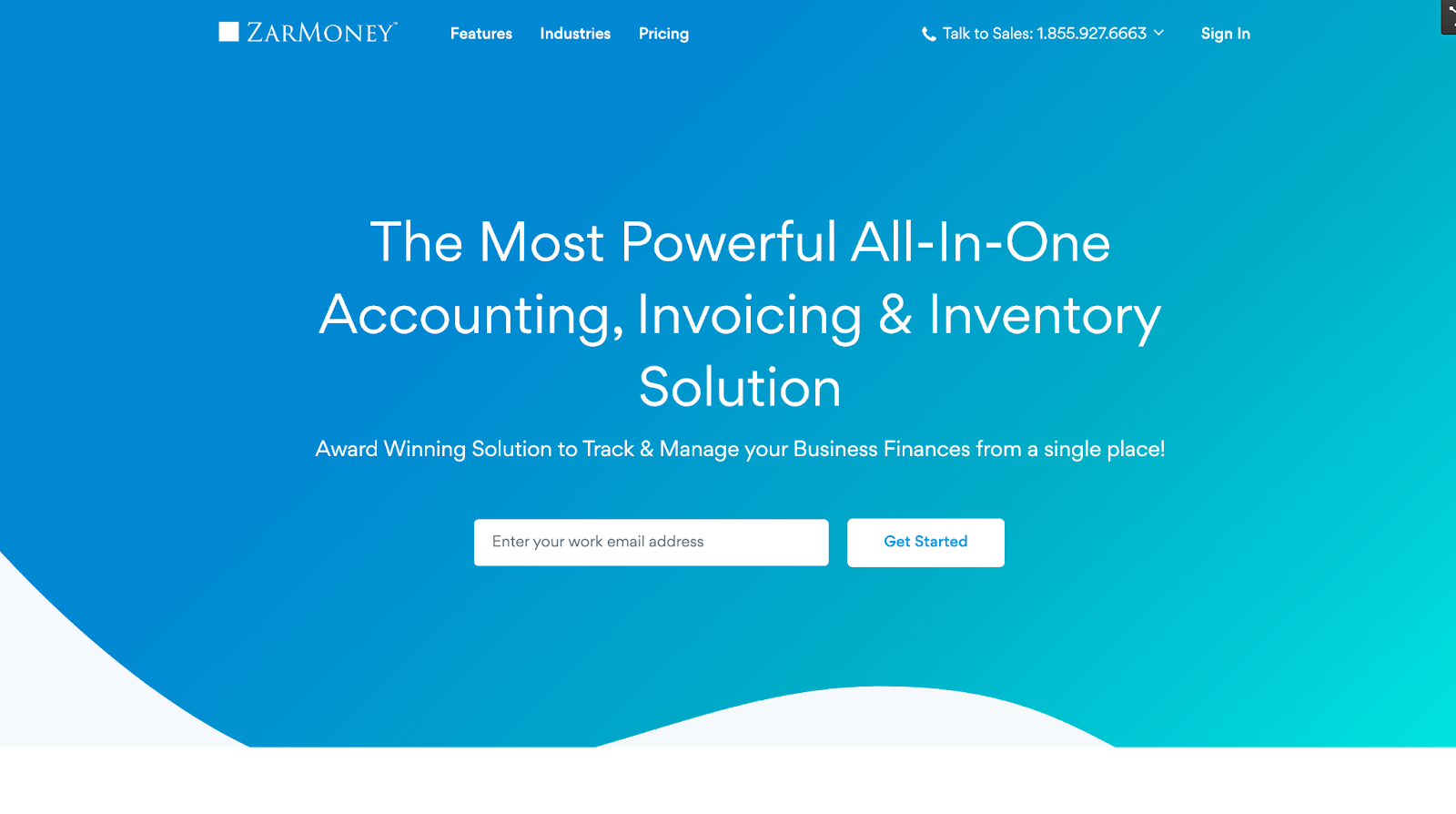
Kicking off our list at number one is ZarMoney, the top Zoho books alternative for small business.
ZarMoney stands out with its user-friendly design and powerful features, such as easy invoicing, financial reporting, and inventory tracking, making it an excellent choice for managing finances efficiently.
If you're searching for a reliable Zoho Books alternative that won't break the bank, ZarMoney could be the perfect fit for your business.
Features
- Detailed inventory management
- User role customizations
- Real-time financial tracking
- Cloud-based access
- Invoice creation and management
- Expense tracking
- Flexible Transaction Forms
- Automated bank reconciliation
- Multi-user access
- Reporting and analytics
- Purchase Order management
Top 3 Features of ZarMoney
1. Detailed Inventory Management

With ZarMoney, you can keep a keen eye on your inventory levels. The tool facilitates real-time tracking, ensuring you always stay supplied and have essential items.
2. Flexible Transaction Forms

Every business is unique, and ZarMoney understands this. Their transaction forms can be customized to fit your business sample, assuring effortless integration with your operations.
3. User Role Customizations
Delegate and define roles with precision. ZarMoney lets you customize user roles, ensuring team members access only the required data and functions.
Pros of ZarMoney
- Intuitive, user-friendly interface
- Scalable for different business sizes
- Offers extensive feature sets not usually found in other similar-priced alternatives
Cons of ZarMoney
- Might be overwhelming for absolute beginners
- The mobile version needs refinement
- Integration with third-party apps can be enhanced
Supported Platforms
- Knowledge Base
- FAQs/Forum
- Phone Support
- Email/Help Desk
- Chat
- 24/7 (Live rep)
Pricing
ZarMoney has two pricing plans
- 15 Days Free Trial
- Small Business $20 / month / 2 users
- Enterprise $350 / month / 30+ users
Final Verdict on ZarMoney
If you're looking for a powerful yet affordable Zoho Books alternative, ZarMoney is the way to go. It's perfect for small businesses that need accounting tools without the complexity or high costs.
2 QuickBooks Online

Intuit's QuickBooks Online takes the second spot on our list of Zoho Books alternatives for small businesses.
It's well-known for its reliability and a range of features that cater specifically to small business needs.
QuickBooks Online makes it easy to manage invoices, track expenses, and handle payroll all in one place.
Features
- Income and expense tracking
- Invoice customization and management
- Cloud-based access
- Automated bank feeds and reconciliation
- Time tracking
- Payroll functionality
- Integrated ecosystem
- Reporting and analytics
- Multi-currency support
- Tax calculation and filing assistance
- Accounts payable and receivable management
Top 3 Features of QuickBooks Online
1 Automation with Bank Feeds

QuickBooks Online allows users to connect to their bank accounts, automatically import and categorize transactions, reducing manual data entry.
2 Integration Ecosystem

With a wide array of third-party app integrations, businesses can connect their operations, from e-commerce to CRM.
3 Payroll Functionality

QuickBooks Online offers in-built payroll solutions, ensuring smooth employee payment processes and tax calculations.
Pros of QuickBooks Online
- User-friendly interface
- Reliable mobile app for on-the-go management
- Strong reporting capabilities
Cons of QuickBooks Online
- It can get pricey with additional features
- Initial learning curve for beginners
- Some users report slow customer support
Supported Platforms
- Chat
- Knowledge Base
- 24/7 (Live rep)
- FAQs/Forum
- Email/Help Desk
- Phone Support
Pricing
- Simple Start: $18
- Essentials: $27
- Plus: $38
Final Verdict on QuickBooks Online
QuickBooks Online is a cloud-based accounting software solution for miniature and medium-sized enterprises. Developed by Intuit, this platform enables users to manage and track expenses, draft and send invoices, run financial statements, and oversee payroll and other financial commitments.
3. FreshBooks

FreshBooks claims the third spot on our list of Zoho Books alternatives for small businesses.
It's particularly popular for its ease of use and exceptional customer support. FreshBooks helps small businesses manage their invoicing, expenses, and time tracking with minimal hassle.
Its mobile app also makes accounting tasks manageable on the go.
Features
- Automated invoicing
- Expense tracking
- Time tracking
- Project management
- Estimates and proposals
- Payments
- Reporting
- Accounting and bookkeeping
- Client Portal
- Mobile apps
- Multi-currency
- Recurring billing
- Automated bank reconciliation
- Team collaboration and permissions
Top 3 Features of FreshBooks
1. Automated Invoicing

FreshBooks lets users create professional-looking invoices that can be automated, saving time and ensuring timely payments.
2. Expense Tracking

This software simplifies expense tracking by categorizing and managing them, thus providing clarity on spending.
3. Integrated Time Tracking
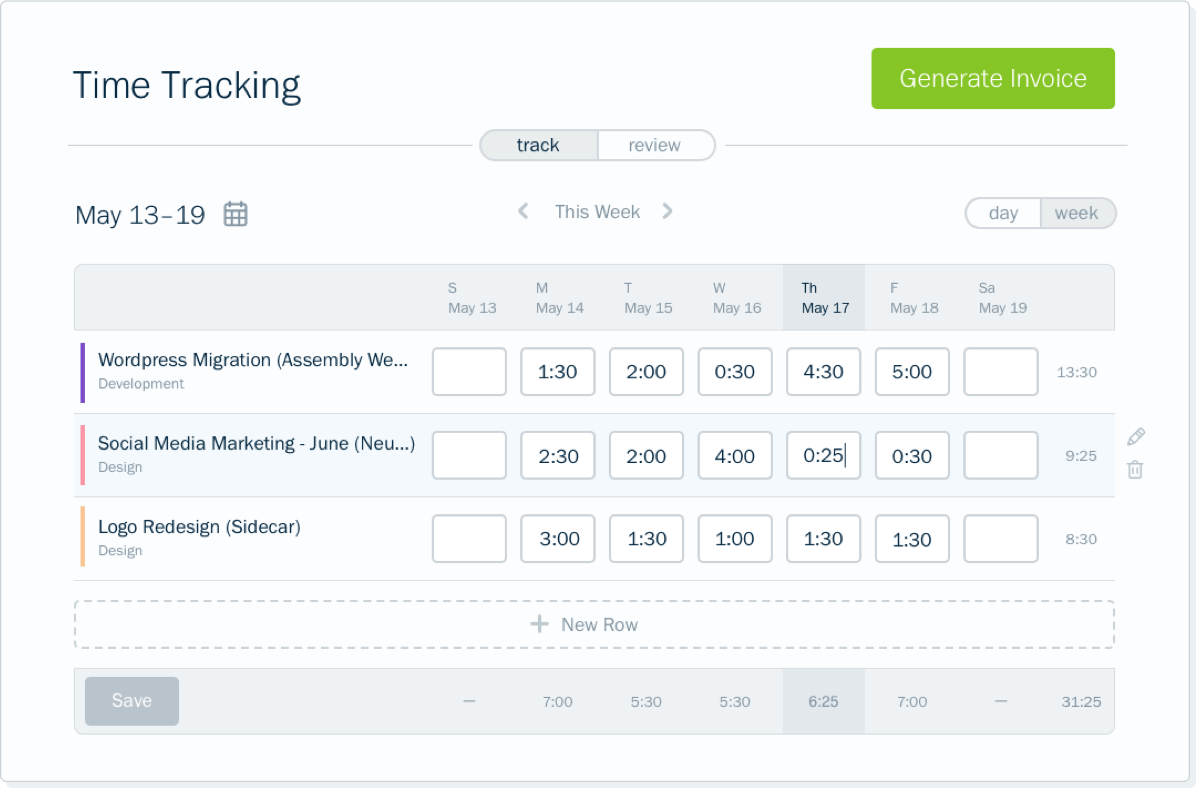
FreshBooks effortlessly integrates time tracking, allowing businesses to bill for hours worked directly.
Pros of FreshBooks
- User-friendly interface is suitable for those new to accounting
- Supports multiple currencies and languages
Cons of FreshBooks
- Fewer bank connections.
- Users can’t shift to other software.
- Expensive to expand.
Supported Platforms
- Email/Help Desk
- Phone Support
- Chat
- FAQs/Forum
- Knowledge Base
Pricing
- Lite $19 / month
- Plus $33 / month
- Premium $60 / month
Final Verdict on FreshBooks
FreshBooks is a great alternative for small businesses that need an effective tool for managing their finances. It’s especially good for those who appreciate support at their fingertips and the convenience of handling accounting from anywhere.
4. Wave
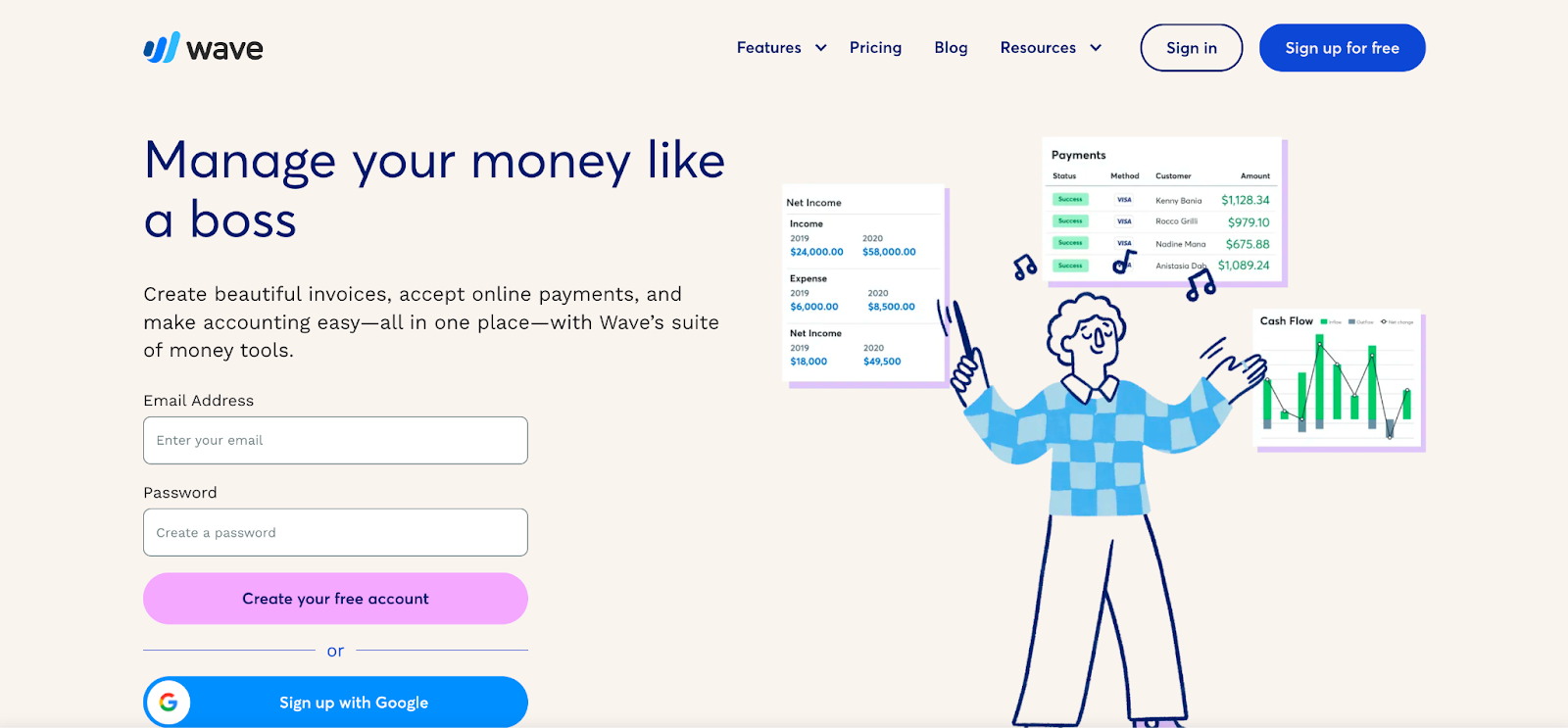
Wave takes the fourth spot in our list of Zoho Books alternatives for small businesses.
It's well-liked for being completely free to use, offering essential features like invoicing, expense tracking, and financial reporting without any cost.
Wave is particularly suited for freelancers and small business owners who are just starting out and need to keep overhead low.
Features
- Invoicing
- Expense tracking
- Accounting and financial reporting
- Receipt scanning
- Payroll (available in certain countries)
- Payments (credit card processing)
- Bank account and credit card connections
- Recurring billing
- Personal finance tracking
- Multi-currency support
Top 3 Features of Wave
1. Free Unlimited Invoicing

Wave does not cap invoicing, making it perfect for businesses on a tight budget.
2. Integrated Payment Solutions

Accept credit cards and bank payments easily and swiftly.
3. Receipt Scanning

Snap and save receipts, making expense tracking more straightforward.
Pros of Wave
- 100% free for basic features
- User-friendly dashboard and reports
- Secure encryption and backup
Cons of Wave
-
There is no dedicated mobile app for accounting (only for invoices and receipts)
Supported Platforms
- Email/Help Desk
- Phone Support
- Chat
- FAQs/Forum
- Knowledge Base
Pricing
- Starter is free
- Pro: $16/month
Final Verdict on Wave
If you’re looking for a cost-effective Zoho Books alternative, Wave is a standout choice. It’s perfect for small businesses and freelancers who need basic accounting tools without the financial burden of a subscription fee.
5. Sage Intacct

Next comes Sage Intacct. It is renowned for its advanced financial management capabilities and extensive customization options.
Sage Intacct stands out with its cloud-based approach, allowing for real-time financial insights from anywhere.
This feature is particularly effective for businesses looking to scale, providing features like advanced analytics, multi-entity support, and automated workflows.
Features
- Core financials
- Multi-dimensional general ledger
- Accounts payable
- Accounts receivable
- Cash control
- Order management
- Purchasing
- Multi-entity and global consolidations
- Revenue recognition
- Time and expense management
- Project accounting
- Advanced dashboards
- Automated processes
- Digital board book
- Contract and subscription billing
- Inventory management
Top 3 Features of Sage Intacct
1. Multi-dimensional General Ledger
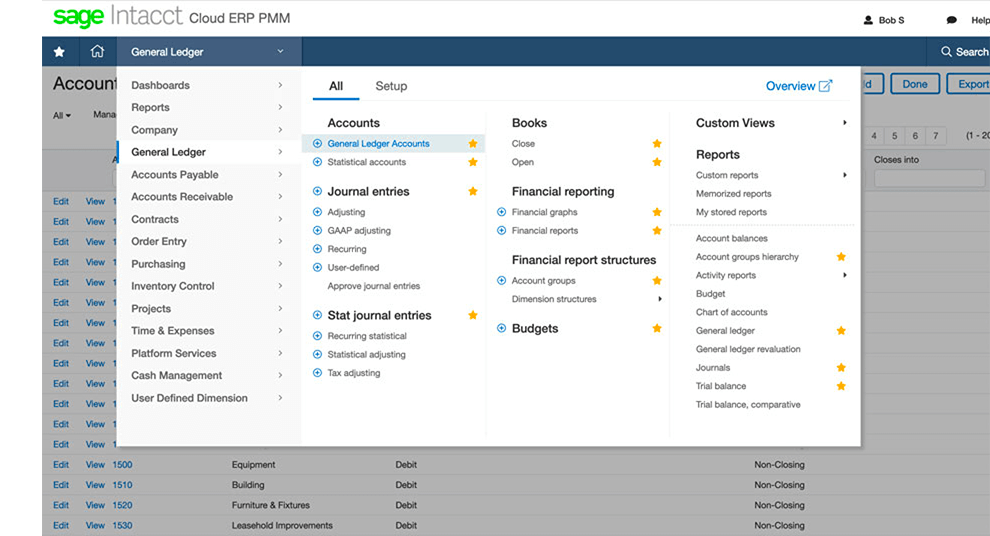
It lets users capture transactional data and create reports based on multiple variables.
2. Advanced Dashboards

Visual, customizable dashboards offer insights into financial performance from any perspective.
3. Automated Processes

Automated procure-to-pay and order-to-cash processes make financial operations seamless.
Pros of Sage Intacct
- Extensive financial reporting features
- Scalable to accommodate growing businesses
Cons of Sage Intacct
- Learning curve compared to other solutions
- It can be on the more expensive side for smaller businesses
Supported Platforms
Sage Intacct is cloud-based and accessible via web browsers, but there's no native mobile application.
Pricing
-
Pricing is quote-based and customized according to business requirements.
Final Verdict on Sage Intacct
Sage Intacct is an excellent choice for small businesses that need a Zoho Books alternative with an extensive feature set capable of supporting growth and complexity. If your business is expanding and you require a powerful accounting solution, Sage Intacct could be the right tool.
6. Kashoo
Kashoo makes it to the seventh position in our list of Zoho books alternative for small business.
It’s known for its straightforward approach to accounting, offering tools that are both easy to use and effective.
Kashoo provides features like automatic bank reconciliation, simplified invoicing, and real-time financial reporting.
Features
- Automatic Bank Reconciliation
- Simplified Invoicing
- Real-time Financial Reporting
- Expense Tracking
- Multi-Currency Support
- Cloud-Based Access
- Secure Data Storage
- Dashboard Overview
- Tax Compliance Tools
- Mobile App Availability
- Double-Entry Accounting
- Collaboration Tools
Top 3 Features of Kashoo
1. Automatic Bank Reconciliation
Kashoo quickly matches your transactions with your bank records, saving you lots of time.
2. Simplified Invoicing
Creating and sending invoices is easy and fast, helping you get paid quicker.
3. Real-time Financial Reporting
See up-to-date financial reports anytime, so you always know where your money stands.
Pros of Kashoo
- Simple interface, easy to navigate
- Excellent for managing basic accounting needs
- Provides clear financial reporting
Cons of Kashoo
- Limited integration with other tools
- Fewer advanced features compared to competitors
Supported Platforms
- Web (Browser-based)
- iOS (iPhone and iPad apps)
- Android app
Pricing
- Truly small Accounting: $216/Yr
- Advanced: $324/Yr
Final Verdict on Kashoo
Kashoo is a fantastic choice for small business owners who need a no-fuss Zoho Books alternative. It’s particularly suitable for those who prefer a clear, uncomplicated tool to manage their finances efficiently.
7. Odoo Accounting

Odoo Accounting rounds out our list at number seven among the Zoho Books alternatives for small businesses. Being a part of the Odoo suite, it offers diverse financial tools, from invoicing to complex operations like multi-currency support.
Odoo's modular approach enables businesses to use and pay for only the necessary tools.
With a strong community behind it, Odoo has positioned itself as a customizable and extensive business software solution.
Features
- Invoicing
- Bank synchronization
- A/R & A/P management
- Multi-currency support
- Dynamic reports
- Asset management
- Reconciliation
- Expense management
- Budget management
- Analytic accounting
- Automated bank feeds
- Cash rounding
- Tax calculation
- Payment terms
- Check printing
- Import & export data
- E-invoicing
- Automatic payment follow-ups
Top 3 Features of Odoo Accounting
1. Automated Bank Sync

Automatically syncs transactions with the bank and reconciles statements.
2. Dynamic Reports
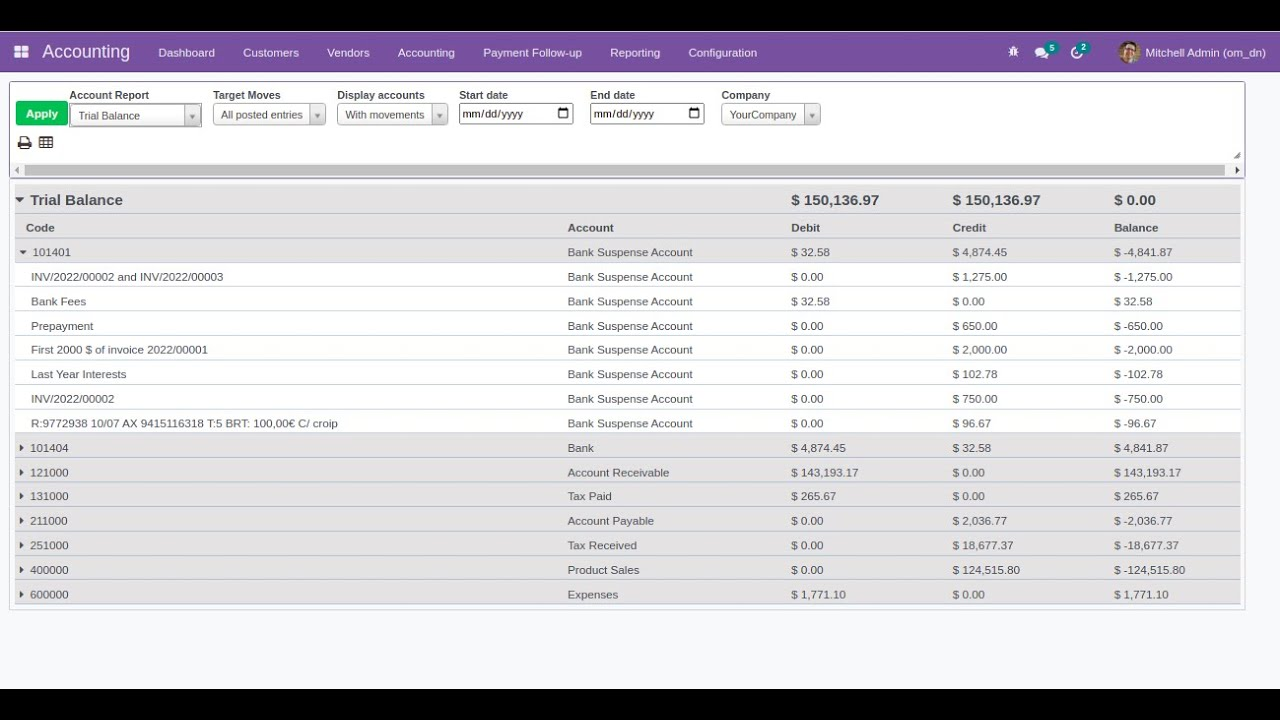
Create balance sheets, gain and loss, and cash flow statements effortlessly.
3. Electronic Invoicing & Online Payments
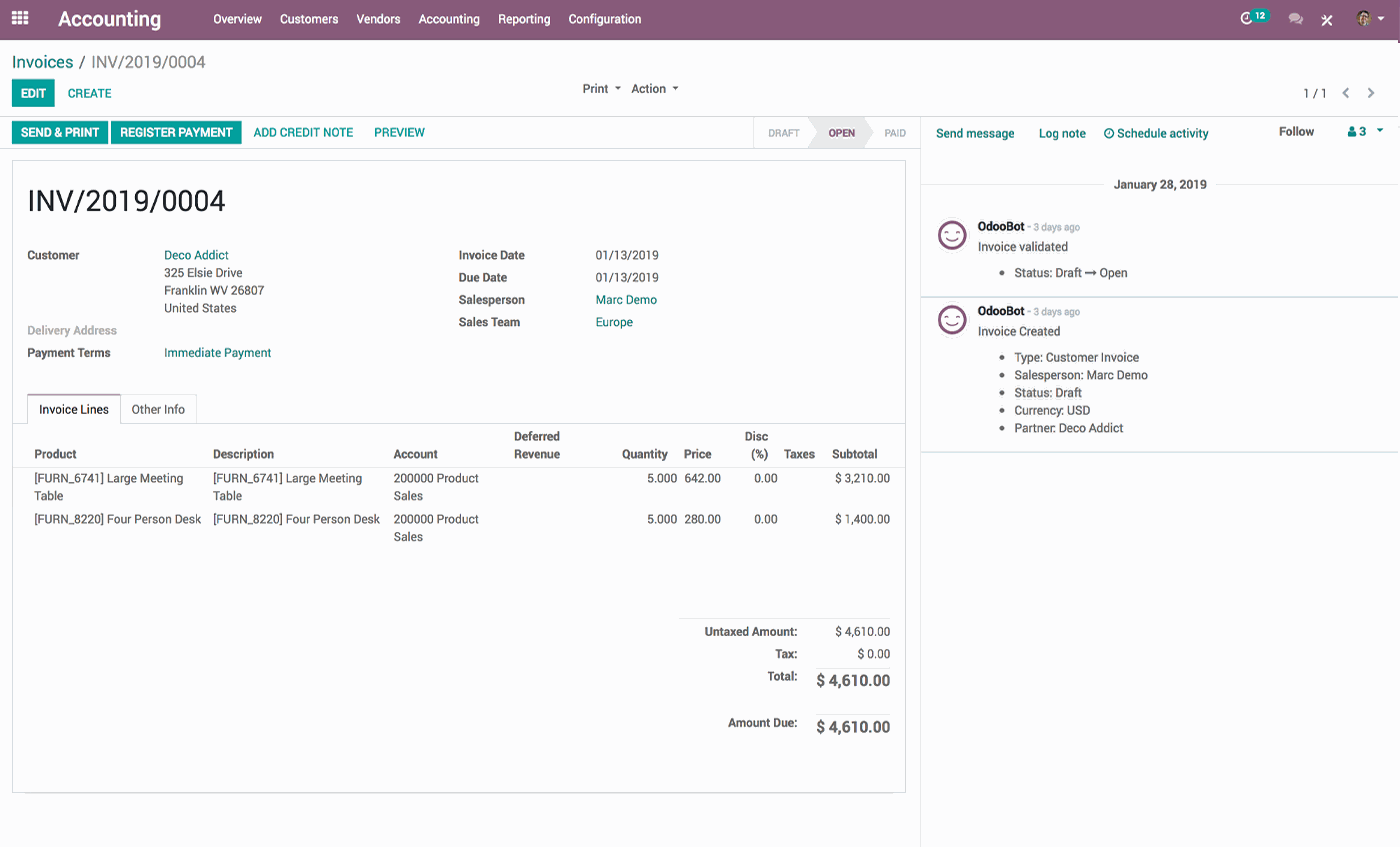
Odoo Accounting helps you send invoices via email and get paid online.
Pros of Odoo Accounting
- Open-source with a strong community
- Scalable with modular design
Cons of Odoo Accounting
- Some advanced features require paid modules
- The interface might be less reflexive compared to opponents
Supported Platforms
- Web browser
- Mobile apps are also available for both Android and iOS.
Pricing
- Odoo has a modular pricing structure, where you pay for the apps/modules you need.
- A free version with limited features is also available.
Final Verdict on Odoo Accounting
Odoo Accounting is a great choice if you're looking for a Zoho books alternative for small business that can connect easily with other business operations. It’s especially useful for small businesses that appreciate having all their tools in one interconnected platform.
Table Comparison Against ZarMoney
|
Features/Software |
ZarMoney |
Wave |
FreshBooks |
Odoo |
Kashoo |
Sage Intacct |
QuickBooks Online |
|
User-Friendly Interface |
✅ |
✅ |
✅ |
❌ |
❌ |
❌ |
✅ |
|
Advanced Reporting |
✅ |
❌ |
❌ |
✅ |
❌ |
✅ |
✅ |
|
Multi-Currency Support |
✅ |
❌ |
❌ |
✅ |
✅ |
✅ |
✅ |
|
Customizable Invoices |
✅ |
✅ |
✅ |
❌ |
❌ |
❌ |
✅ |
|
Payroll Integration |
✅ |
❌ |
✅ |
✅ |
❌ |
❌ |
✅ |
|
Real-time Data Access |
✅ |
❌ |
❌ |
✅ |
✅ |
✅ |
❌ |
|
Cloud-Based |
✅ |
✅ |
✅ |
✅ |
✅ |
✅ |
✅ |
|
Customer Support |
✅ |
❌ |
✅ |
❌ |
✅ |
✅ |
✅ |
Best of Best Section
1 . ZarMoney
ZarMoney is the best Zoho books alternative for small business , specially for those who’re looking for a complete accounting solution. It offers everything from customizable invoices and payroll integration to real-time data access and excellent customer support, all in a user-friendly interface.
2. QuickBooks Online
QuickBooks Online, being one of the best Zoho books alternative for small business, is known for its extensive features, including advanced reporting, multi-currency support, and cloud-based convenience. It's ideal for businesses that need reliable and comprehensive financial management tools.
3. Sage Intacct
Sage Intacct excels in advanced financial management for growing businesses. It supports complex processes with features like multi-entity support and advanced analytics, making it suitable for businesses that are scaling up.
Conclusion
Finding the right accounting software is essential for managing your small business effectively. While Zoho Books is a solid option, there are several great alternatives out there.
Among them, ZarMoney stands out as the best Zoho books alternative for small business. It offers features that cater to all your business needs, from invoicing to real-time data access, all with exceptional ease of use.
Whether you're just starting out or looking to upgrade your current system, consider these alternatives to find the one that best fits your business requirements.
Frequently Asked Questions (FAQs)
Q1. What are the uses of best Zoho Books alternatives for small businesses?
These software solutions help businesses manage their finances, from invoicing to expense tracking.
Q2. What is the best Zoho books alternative for small businesses?
It refers to the top software solutions that can be used as an alternative to Zoho Books for managing business finances.
Q3. What are some top alternatives to Zoho Books for small businesses?
Some of the top alternatives to Zoho Books for small businesses include ZarMoney, QuickBooks Online, FreshBooks, Sage Business Cloud Accounting, and Wave. These platforms offer a range of accounting and financial management tools tailored to meet the needs of small business owners, ensuring that financial processes are optimized and efficient.
Q4. Why might a business seek an alternative to Zoho Books?
Every business has unique requirements. Some may seek features not present in Zoho Books, or they might be looking for a more user-friendly interface, better integration capabilities, or a different pricing structure.
Q5. How do these alternatives differ in pricing?
Pricing can vary widely based on features, user limits, and other factors. Visiting each software's official website for accurate and up-to-date pricing information is most suitable.

